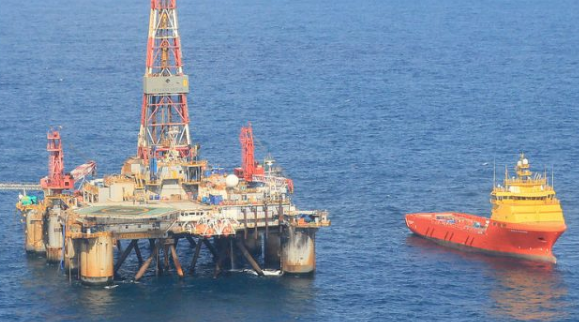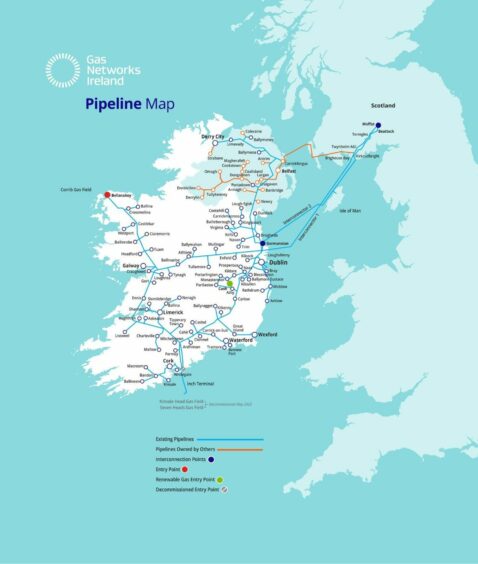
Trade body, Offshore Energies UK (OEUK), is set to publish a report finding that the Republic of Ireland’s reliance on British gas imports has more than doubled since 2017.
In the document that is set to be published on the 28th of March, OEUK says that 75% of Irish demand is now being met by UK imports.
OEUK’s report will warn that Ireland’s growing reliance on imports could be ‘irreversible’ because of the Irish government’s decision to stop issuing new exploration licences for oil and gas.
The trade body warns that as Ireland’s existing gas fields become depleted, it has very limited ways of replacing them.
OEUK claim that the situation Ireland finds itself in illustrates the importance for all countries of maximising energy efficiency and domestic energy production, particularly from renewables and other sources.
Doubling reliance
OEUK’s markets intelligence manager and author of the report, Ross Dornan, said: “Following the Republic of Ireland’s ban on new oil and gas licensing, its government’s own estimates suggest that by 2030 Ireland could be 90% reliant on gas imports.
“The Irish government was acting with good intentions. It imposed this ban to cut greenhouse gas emissions. But such bans can only reduce emissions if they are coupled with reductions in gas demand and consumption.”
A recent report published by the Irish government supports these findings, stating: “In 2019, 53% of Ireland’s natural gas use was imported from the UK.
“Following the depletion of the Corrib gas field, Ireland is expected to be dependent on over 80% imports by the mid-2020s and over 90% by 2030.”
The OEUK report will lay out that natural gas flows to Ireland have “more than doubled since 2017”, as domestic Irish supplies have fallen.
“The country is considering how to ensure energy security in this context, including the development of LNG imports as a part of its supply portfolio,” the report reads.
Irish gas supply and demand
There are three gas pipelines running from Scotland under the Irish Sea. One takes gas to Northern Ireland while the others feed into the Irish Republic.
Natural gas meets over 30% of the Irish Republic’s energy needs, heating and powering 700,000 homes and businesses and generating over 50% of its electricity and demand for gas and electricity is increasing.
It’s de facto ban on further oil and gas exploration was formalised in 2021 with the Irish government saying then that the move was part of a wider effort to reduce greenhouse gas emissions.
However, Mr Dornan argues: “Gas imported from abroad usually generates more emissions because of the energy used to liquefy it, transport it and then turn it back into a gas. So there is no real benefit for the planet if you replace domestic supplies with imports.
“The events in Ireland and its growing dependence on imports highlight the dangers of applying similar bans to the UK’s production of oil and gas from the North Sea, Irish Sea and Atlantic.”
The report’s author goes on to explain the wider impact of this situation: “The UK is a vital strategic partner to Ireland and its European neighbours, helping maintain energy supplies in their time of need. We hope they would do the same for us.
“It would be dangerous to disrupt these mutually supportive networks.
“The UK has 23 million homes heated by gas boilers, 32 million vehicles running on petrol or diesel and gets 40% of its power from power stations that burn gas. If we want to cut our greenhouse gas emissions, we need to replace that infrastructure with low carbon alternatives – not cut off our own supplies.”


 © Supplied by Gas Networks Ireland
© Supplied by Gas Networks Ireland